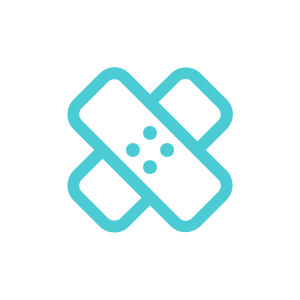There is so much buzz (read: extremely annoying buzz words) around building a strong personal brand. How can you own the internet? How can you make sure you are the go-to person for your area of expertise? The jargon and the tools suffocate, and at times, chokes your very essence to death . As a recovering higher ed professional myself, I’ll offer some straightforward ways to unlock your inner unicorn and make the biggest impact on your campus.
Hello, We're People: The Tao of Engagement
There is no word I use so often and dislike so much as I do the word “engagement.” It is overused, it sounds like it was lifted from an 80s business seminar, and—its worst crime of all—it is vague.
Because the word is already ubiquitous, we can’t get away from using it. So we try and try again to redefine it instead.
At Switchboard, we begin our weekly team meetings with a segment called “Hello, we’re people.” It’s a chance for us to be light-hearted and share something about ourselves. For example, what our favorite kind of pie is, or what sort of crime we’d most like to adjudicate as jurors (high-level white collar crime, across the board).
In that spirit, today I’m writing about how my understanding of Daoist philosophy informs my relationship with that terrible word—engagement.
Scaling Networks to Empower Our Students, Alumni, and Institutions
Pick a career services professional at any school, and you’ll find that they’re busy. Too many students to help, too little time.
Not to mention alumni. Many career services offices don’t have time to serve alumni, and even those that do often only have one or two people serving a population of thousands—or tens of thousands.
No matter how many one-on-one meetings you have or events you throw, when you’re operating on that kind of scale, there’s no way that traditional methods can help all the students and alumni who need it.
In 2018, Patch Your Leaks Before Building New Programs
When your ship is sinking, is it better to try to patch the leaks, or to build another boat?
In higher ed, whether we realize it or not, our first instinct is often to build another boat. When our existing programming stops drawing crowds, we look for new programming to bring them back. What we should do instead is ask ourselves, "Why did this stop working?" and then try to fix it.
Announcing Switchboard's New Higher Education Innovation Fellows Program
We talk a lot in higher ed about how to better serve our students, alumni, and other constituents. But we seldom focus on how to better help the professionals who serve them.
That’s why Switchboard is launching the Higher Education Innovation Fellowship program.
The Higher Education Innovation Fellowship (HEIF) is a year-long program where fellows will learn from leaders across disciplines (e.g. technology, behavioral economics, nonprofits, and higher education) and practice innovation in higher education.
The fellowship includes six months of curriculum, nine days of innovation workshops at Switchboard HQ in lovely Portland, Oregon, and a six-month applied campus innovation project where fellows will put one of their ideas into action with the one-on-one guidance of a coach.
This program is designed for ambitious emerging leaders in higher education who want to learn best practices to scale innovation at their institutions. Professionals from all experience levels are welcome to apply. With a focus on constituent-facing leaders, the fellowship is designed for professionals who serve current students, alumni, parents, and friends of their institution.
We know that improvement and innovation in higher ed requires that institutions invest in the people who serve students and alumni. Higher ed is the key to economic mobility for many students and families we serve; they deserve us at our best. We’ve designed the fellowship to that end.
How the Black Box of "Mentoring" Tricks Us Into Implementing Failing Strategies
Mentoring programs for students and young alumni are increasingly popular in the higher education community, but they're not turning out to be all that we hope they are. Mentoring programs promise to tap into the inactive parts of our alumni networks to help students and young alumni advance their careers and engage older alumni at the same time. This promise isn't being realized.




